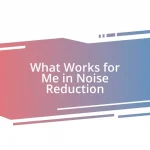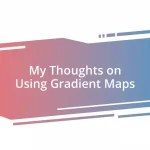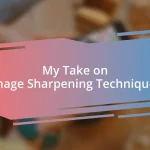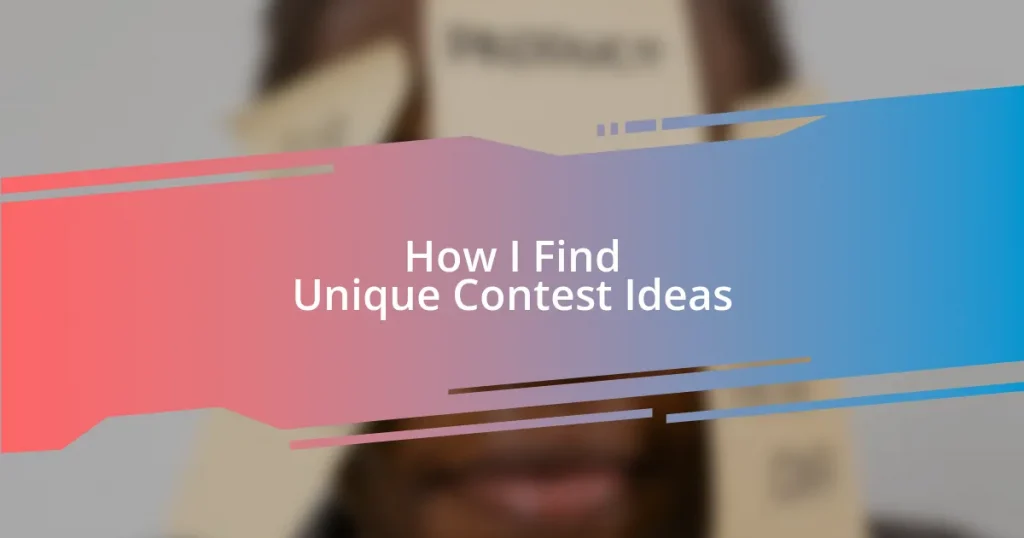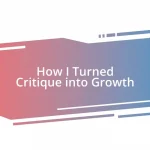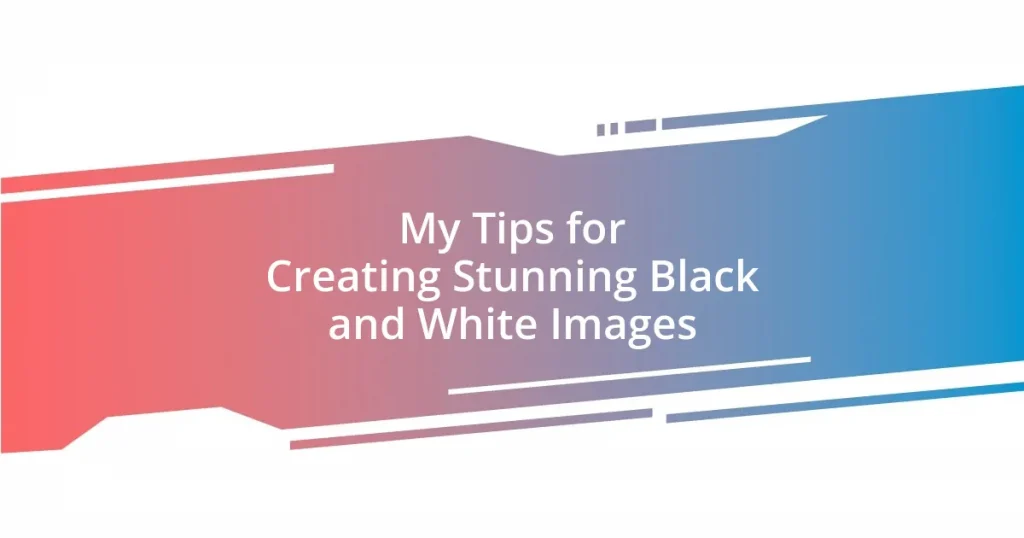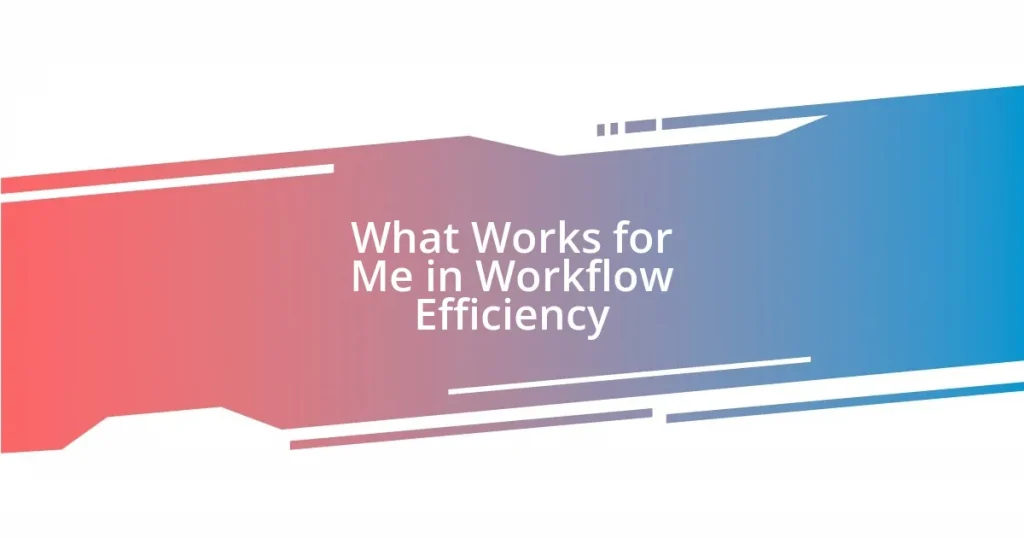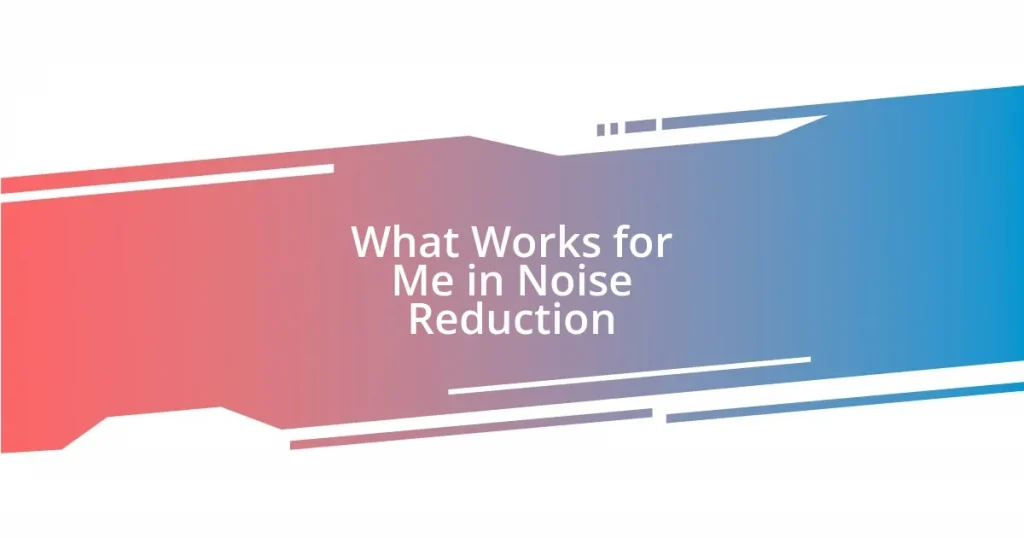Key takeaways:
- Understanding the audience’s interests and emotions is vital for creating engaging contests that foster community and genuine participation.
- Exploring various contest types, such as photo contests and storytelling challenges, can yield unique and exciting entries.
- Leveraging trending topics and social media insights helps create relevant contests that resonate with current interests and foster engagement.
- Testing and refining contest concepts through feedback and pilot tests can significantly enhance participant experience and engagement.
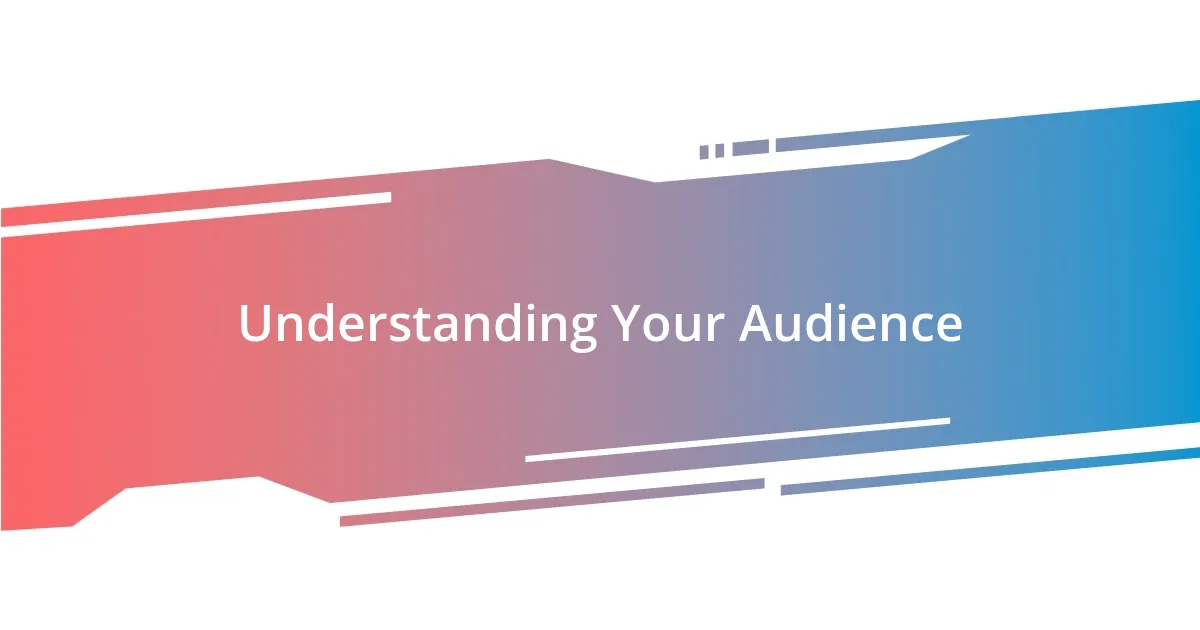
Understanding Your Audience
Understanding your audience is crucial for finding unique contest ideas that truly resonate. I remember when I hosted a photography contest aimed at local artists. By diving deep into their interests and struggles, I learned they were more passionate about showcasing their communities rather than just their skills. This insight shaped the contest themes, resulting in a remarkable participation rate and heartfelt submissions.
Consider the demographics of your audience. Are they teenagers looking for fun or professionals seeking skill enhancement? When I catered to a younger demographic, their love for social media trends led me to include viral elements in my contest. I think back to a digital scavenger hunt I organized—it sparked excitement and engagement because it aligned with their interests. Have you ever thought about how audience age and interests influence the type of contests that are most effective?
I’m always amazed at how emotions drive participation. After creating a contest centered around a cause that mattered to my audience, such as environmental awareness, I noticed a surge in entries and enthusiasm. This connection felt genuine and impactful, reminding me that, at the end of the day, contests should not just be about prizes, but also about fostering a sense of community and shared purpose. How do you want your audience to feel when they engage with your contest?
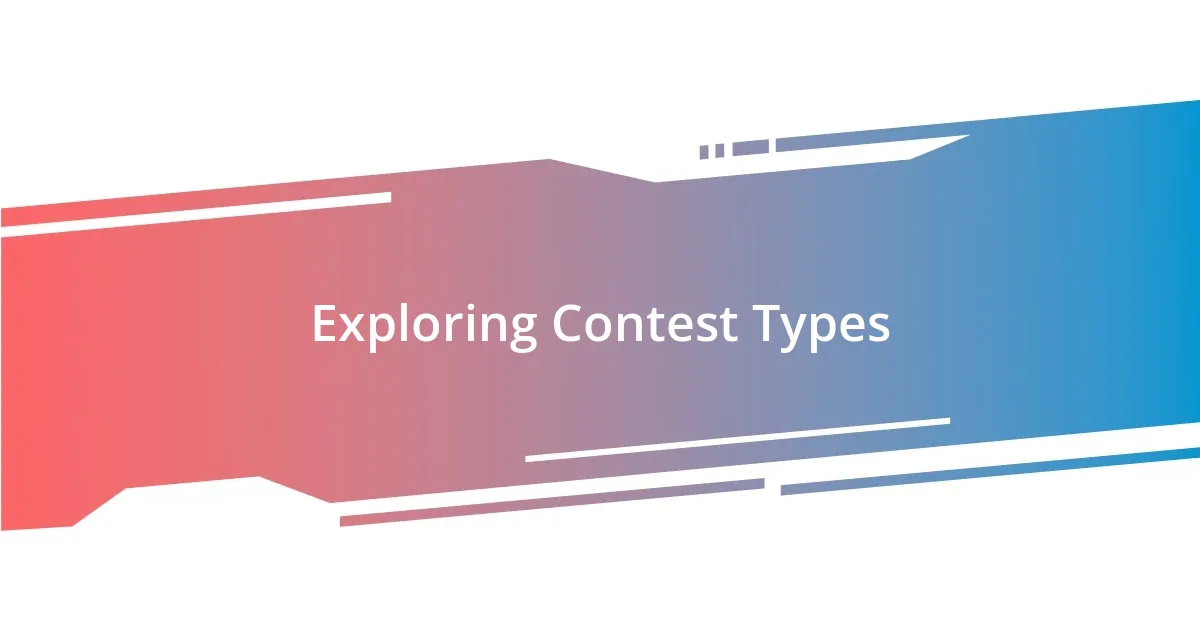
Exploring Contest Types
When it comes to contests, the type you choose can significantly impact engagement and creativity. I’ve experimented with various formats, from traditional essay contests to more interactive challenges like video submissions. Each type brings a unique flair, and I’ve found that the more unconventional formats often lead to unexpected, exciting entries.
Here are some contest types to consider:
– Photo Contests: Capturing moments can draw out deep emotional connections.
– Skill Challenges: Whether it’s cooking or coding, showcasing talent can be both competitive and educational.
– Storytelling Contests: Encouraging narratives taps into personal experiences, making participants feel heard.
– Crowdsourced Ideas: This involves asking the audience to submit ideas, engaging them in the creative process.
– Themed Competitions: Aligning with trends or current events can make your contest feel timely and relevant.
I once hosted a storytelling contest where participants shared personal tales about their childhood adventures. The heartfelt submissions not only highlighted their creativity but also formed an emotional bond within the community. It reminded me that the type of contest can foster connection, making the experience not just about winning but about sharing and belonging.
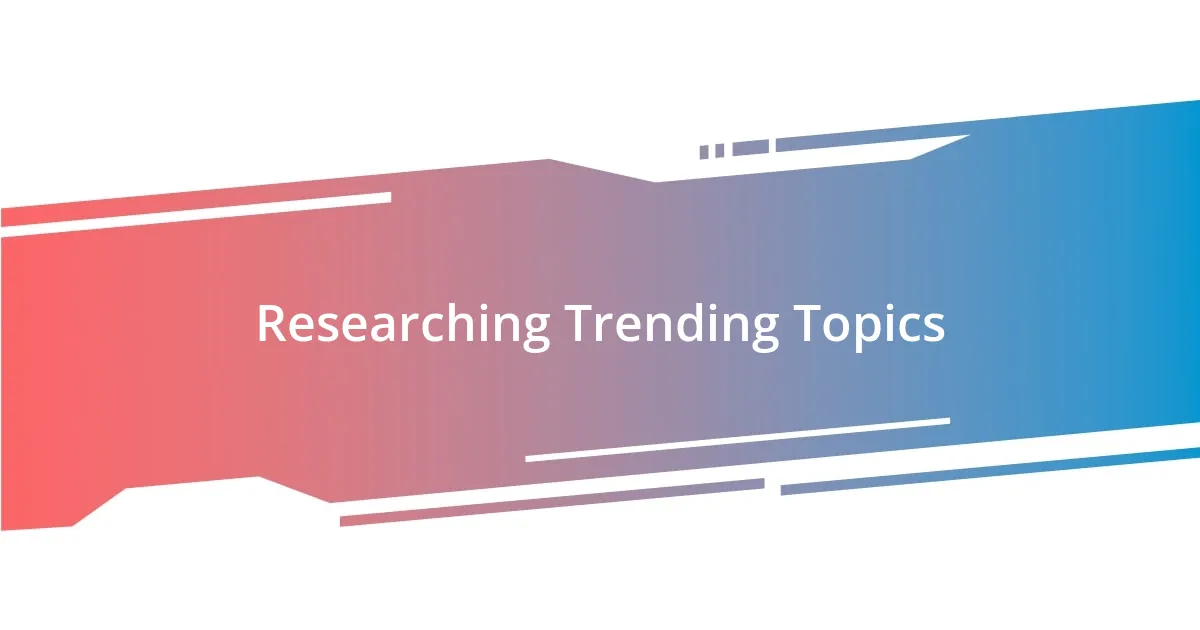
Researching Trending Topics
Researching trending topics can provide a treasure trove of inspiration for your contests. I often turn to social media platforms to observe what’s gaining traction, and it never ceases to amaze me how quickly trends evolve. For instance, I stumbled upon a viral dance challenge on TikTok that sparked the idea for a creative video contest. By aligning my contest with popular trends, I captured the interest of participants eager to join in on something already buzzing in the online world.
Staying updated with current events is another invaluable strategy. I’ve learned that keeping an eye on news articles, blogs, and even forums can offer unique angles for contests. For example, during peak interest in sustainability discussions, I organized a photo contest focused on eco-friendly practices. The enthusiastic response not only produced stunning visuals but also encouraged conversations around important themes, which is what makes contests truly special. How often do you mix global or local events into your contest brainstorming process?
I’ve found that browsing platforms like Pinterest can also spark unique contest ideas. You’d be surprised at how many creative prompts and themes circulate there! Once, I discovered a trend around handmade crafts, which inspired me to launch a contest showcasing DIY projects. By tapping into what’s hot in the creative community, I not only engaged participants but also admired their innovative submissions.
| Source of Inspiration | How it Influences Contest Ideas |
|---|---|
| Social Media Trends | Aligns contest themes with popular culture |
| Current Events | Inspires engagement through relevant topics |
| Pinterest and Visual Boards | Provides creative prompts and themes |

Leveraging Social Media Insights
When I dive into social media, I often discover hidden gems of creative inspiration. For instance, last summer, I noticed a surge of interest in sustainably sourced products on Instagram. It hit me—what if I created a contest where participants showcased their favorite eco-friendly items? The enthusiastic response turned into not just entries but a community dialogue about sustainability, merging creativity with purpose. Isn’t it amazing how a single trend can spark such meaningful interactions?
Engagement is another goldmine that social media provides. Recently, I launched a contest that capitalized on the rising popularity of amateur cooking videos. I asked participants to share their best home-cooked dish through a TikTok challenge. What struck me was the joy in viewing every entry—each video told a story of family traditions or new culinary experiments. Have you ever thought about how sharing these moments can create a connection that transcends the contest itself?
I’ve also learned to pay attention to hashtags that catch my eye. While scrolling through Twitter, I stumbled upon #RandomActOfKindnessDay. This inspired me to encourage participants to share stories of kindness in a contest format. The heartfelt responses opened my eyes to the genuine impact contests can have. It’s not just about competition—it’s about illuminating the good in our communities. Have you ever considered how social media can help amplify narratives of kindness and compassion through contests?
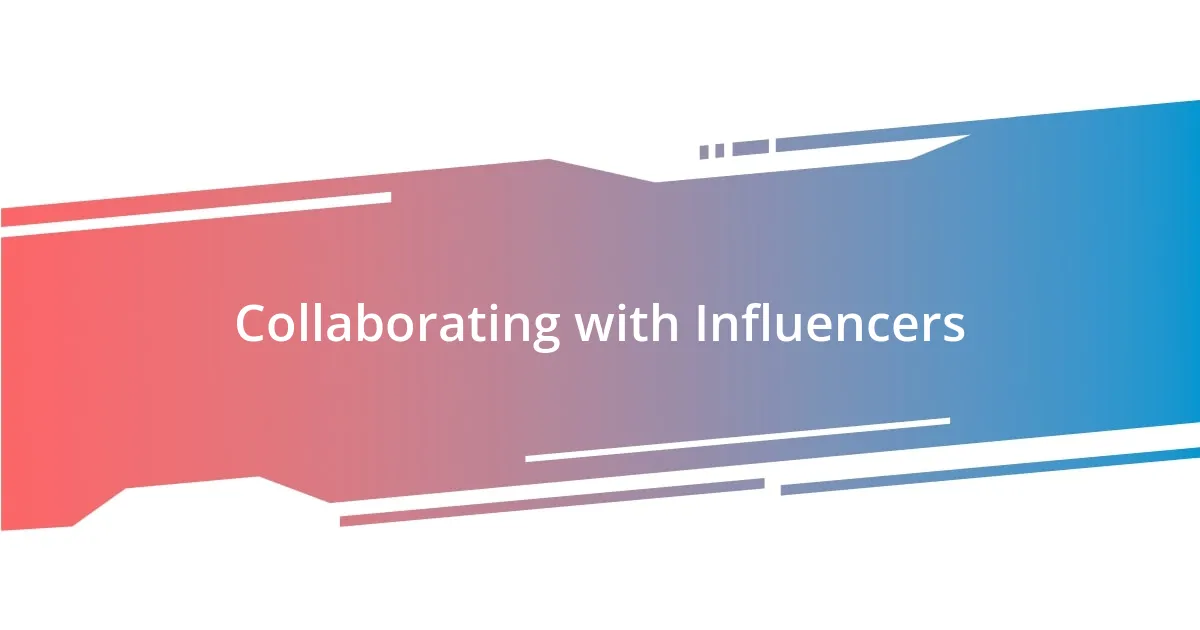
Collaborating with Influencers
Collaborating with influencers can be a game-changer when brainstorming unique contest ideas. I remember one instance where I teamed up with a local eco-warrior influencer who was passionate about sustainable living. By creating a contest in which their followers submitted photos of their sustainable practices, we not only drew in a wider audience but also fostered discussions around eco-friendliness. Have you ever wondered how much impact an influencer’s endorsement can have on your contest’s reach?
Another memorable collaboration involved a well-known travel blogger. Together, we designed a travel-themed photo contest that encouraged participants to share their favorite vacation memories. The turnout was incredible, and it was deeply rewarding to see the diverse experiences shared, each photo bursting with emotion and adventure. This collaboration not only enhanced the contest’s visibility but also built a sense of community among participants. What would you do to incorporate the influence of travel into your next contest?
I often look at an influencer’s audience and interests to guide the contest’s theme. For instance, when sensing a growing interest in plant care from a gardening influencer, I launched a ‘Plant Parenting’ contest, inviting people to showcase their green-thumb success stories. The burgeoning community of plant lovers engaged wholeheartedly, sharing tips and personal anecdotes about their leafy companions. If you think about it, leveraging an influencer’s unique voice can add layers of authenticity and excitement to your contests. Have you considered how an influencer’s passion can elevate the engagement level of your contest?
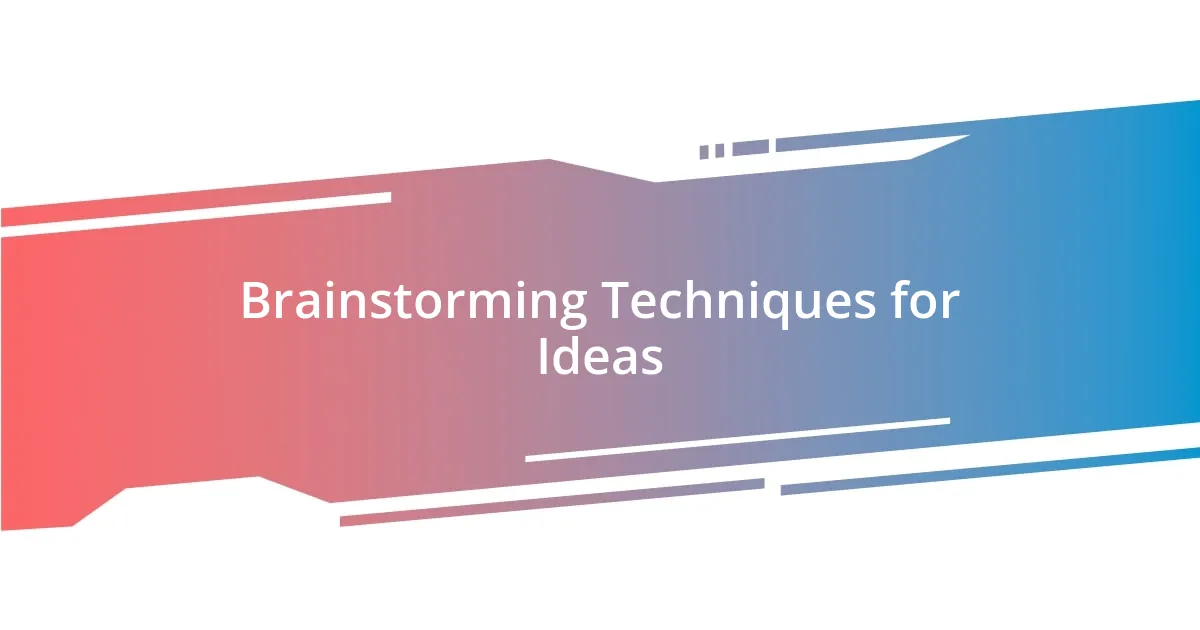
Brainstorming Techniques for Ideas
I often experiment with mind mapping when brainstorming contest ideas. It’s a visual technique that really helps me understand how ideas connect. For instance, I once started with the simple word “community,” then branched out to themes like art, history, and local heroes. The end result? A contest that invited participants to share their stories about influential figures in their lives—truly eye-opening!
Another effective technique is free writing. I set a timer for ten minutes and let my thoughts flow without worrying about structure or grammar. One day, I wrote about my love for books and how they shape our imaginations. To my surprise, this led to the idea of a “Favorite Book Character” contest, where participants dressed up as their beloved characters. The enthusiasm was palpable, and I felt the joy radiate from the entries!
Brainstorming in a group can also spark innovative ideas. Recently, I gathered a few friends over coffee, and we tossed around concepts for a creative art contest. Their diverse perspectives opened my eyes to new possibilities, like encouraging submissions that combined various art forms. It was thrilling to see how different backgrounds could create such unique contest themes, reminding me of the rich tapestry of creativity we all hold within us. Have you thought about who in your life might help you unlock your next big idea?
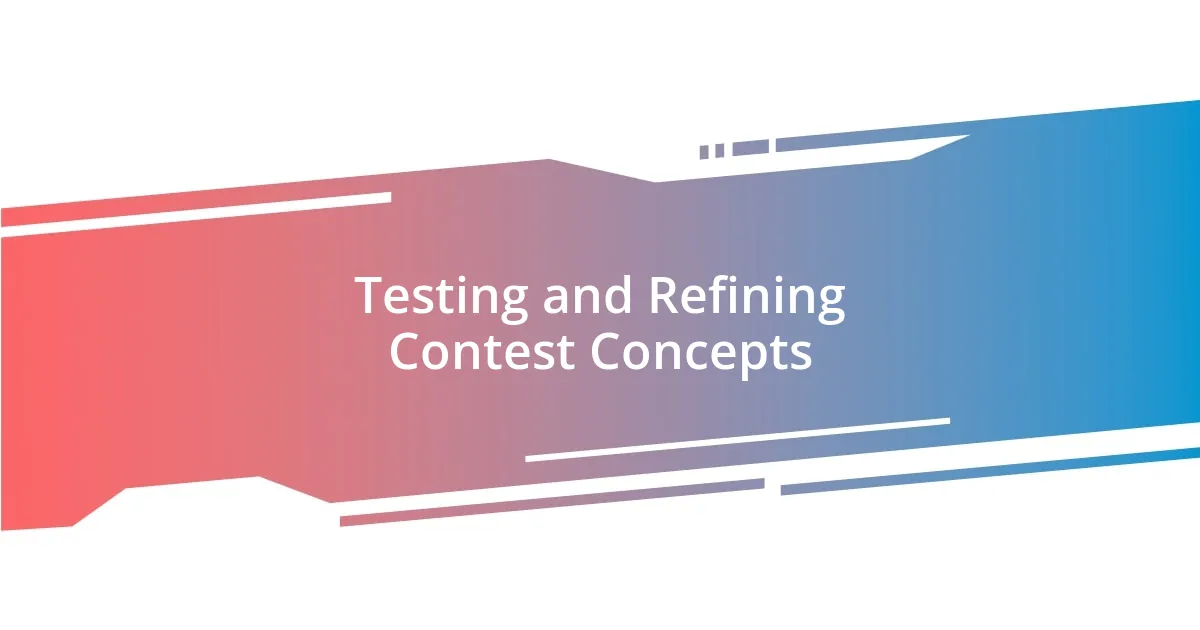
Testing and Refining Contest Concepts
Testing contest concepts is crucial for ensuring they resonate with your audience. I once started with a vibrant idea for a photography contest but realized early on that the theme didn’t quite connect with potential participants. By reaching out to a small group of my followers for feedback, I discovered that they preferred a theme centered around local hidden gems rather than general scenery. This simple act of listening transformed the contest into an exciting adventure for everyone involved.
Beyond gathering initial feedback, I often conduct small pilot tests of contest ideas. For instance, I created a mini-version of a planned larger contest to gauge interest. By running it on a smaller scale with limited participants, I was able to observe engagement levels and tweak the rules based on their experiences. What fascinated me the most was how participants shared not just their entries but also suggestions for improvement, turning the contest into a collaborative experience. Have you ever thought about how a small trial run could elevate your main contest?
Another valuable step in refining contest concepts is analyzing data from previous contests. I remember diving into metrics from a recent cooking competition that had exploded in popularity. After reviewing participant demographics and entry engagement, I realized that adding interactive components, like live cooking sessions, could elevate the experience further. By infusing these insights into the next contest, I felt a surge of excitement for the potential connections and community it could build. How often do you review past data to fuel your next contest idea?


